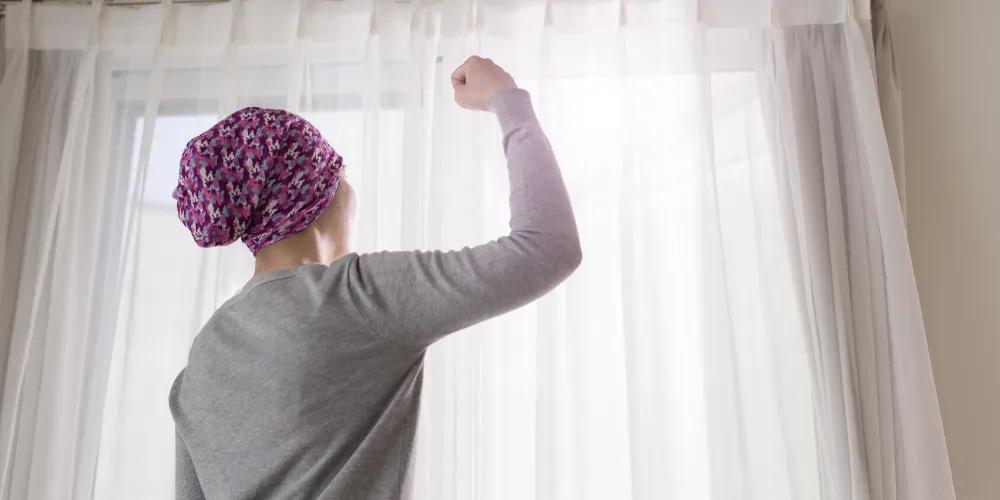Clinical psychologist Emily Cox-Martin, Ph.D., discusses National Cancer Survivors Awareness Day and offers tips and tricks for maintaining and improving the mental health of cancer survivors.
Transcript: Hello, my name is Emily Cox Martin, and I’m a clinical psychologist at the University of Colorado Cancer Center, and today I’d like to talk to you about National Cancer Survivors Day, which is the first Sunday in June. Survivors Day gives us the opportunity to acknowledge and to celebrate the nearly 17 million people living in America today who have had a cancer diagnosis, as well as their friends, their family members and the providers who have cared for them.
As a clinical psychologist, my focus on survivorship is on emotional illness and mental health. Mental health symptoms including anxiety and depression are more common in patients who’ve had a cancer diagnosis. This may be due to a number of factors. For example, following cancer treatment, patients may experience physical side effects including chronic pain or ongoing fatigue. These physical symptoms can cause distress. They may challenge the patient in getting back to activities that matter such as going back to work, enjoying hobbies, or starting new relationships. Additionally, the patient may perceive that following treatment there’s a decrease in social support from friends and family members. Medical appointments are often spaced out; scans are less frequent. This may contribute to feelings of fear of recurrence, a common experience in our patients.
So what can you do to support your own emotional health or that of a cancer survivor who’s important to you? First of all, for friends, family members, and even providers, simply asking the cancer survivor how they’re doing can be an important step. Again, because difficulties with emotional wellness can last long after the initial diagnosis, asking at any point in the cancer continuum is helpful. Second of all, get engaged. There are a number of advocacy groups, programs, and even research that you can be a part of to help move forward the conversation around mental health wellness and cancer survivors. Finally, if you’re feeling overwhelmed regarding distress related to your cancer or as a caregiver, you can contact a mental health provider. The University of Colorado Cancer Center is offering support groups for both patients and caregivers remotely at this time. Additionally, clinical psychologists are available to see patients throughout the cancer continuum including into extended survivorship.
Thank you and happy National Cancer Survivors Day!



